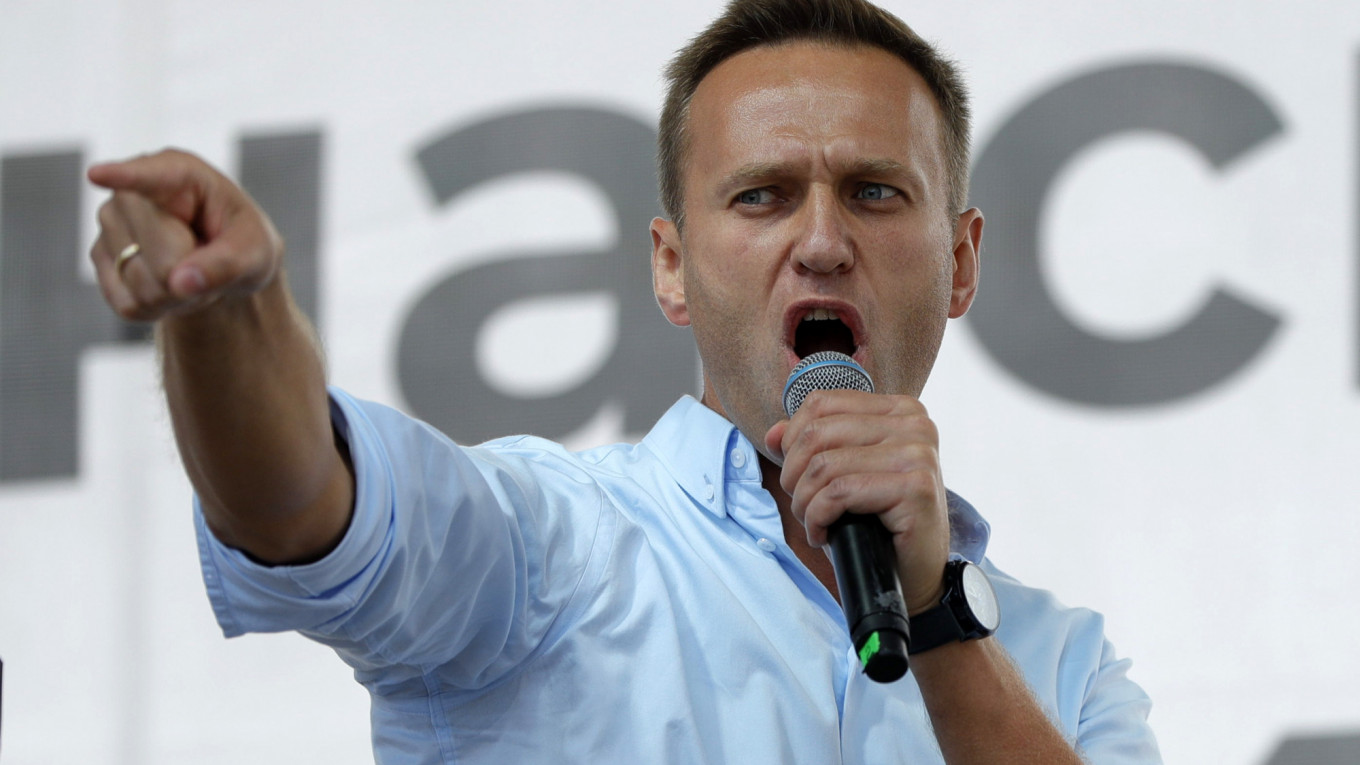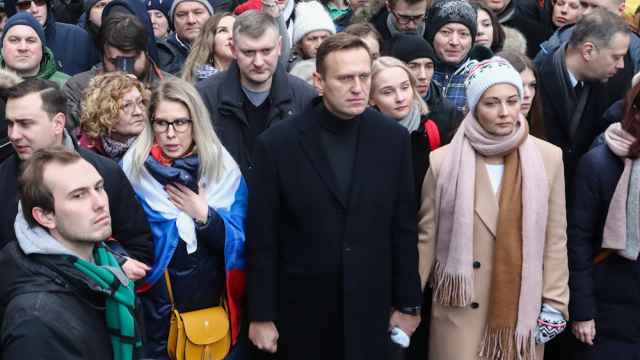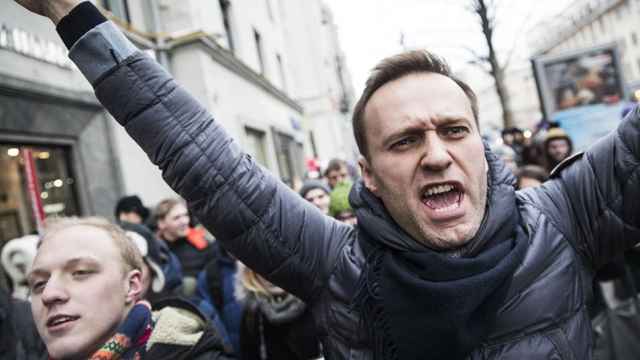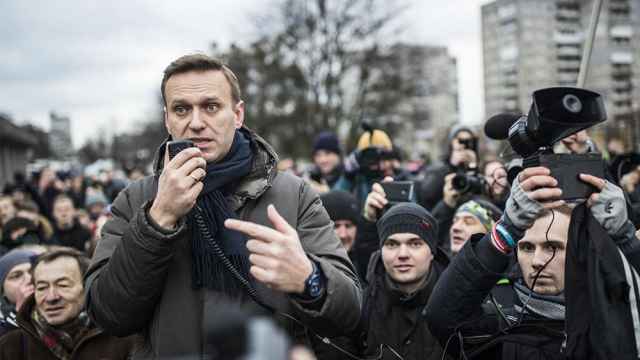At the time of writing, Alexei Navalny is still fighting for his life, after apparently being poisoned as he left Tomsk. For many, this must have been a “Kremlin hit,” but the uncomfortable truth is that under Vladimir Putin, political murder is no longer a monopoly of the state.
It is certainly not impossible that the Kremlin was to blame. Given the authorities’ unease at scenes of people power at work in Belarus, worries over the protests in Khabarovsk and concern about a general tide of surly resentment at a national government that seems out of touch with the provinces, it could be that Navalny’s “smart vote” campaign and his work in the regions took him across that lethally invisible, unpredictably mobile line that defines the barely acceptable forms of opposition.
However, Navalny’s own claim — that he was alive because he was more of a problem for the regime dead — probably still holds true. Besides which, the state seems to have been caught off guard.
First the doctors were admitting some kind of poisoning, then it was just a blood sugar imbalance. First the police were saying it was nothing, then they were admitting the presence of unexpected chemical traces. First Navalny could not fly because it would be unsafe for others, then that it wasn’t safe for him. First the news said he wasn’t poisoned, then propagandist-in-chief Dmitry Kiselev was claiming he was poisoned by the Americans or the British.
To be sure, incompetence and incoherence are not exactly unheard of when it comes to the Kremlin and its security forces. Omsk’s (truly beautiful) Assumption Cathedral has a fine spire, but nowhere near as tall as Salisbury’s; even so, maybe someday we’ll hear a couple of security officers tell of their day-trip there…
However, this confusion is reminiscent of the immediate aftermath of the murder of Boris Nemtsov by what turned out to be Chechen gunmen in 2015. Rival stories abounded, and an investigation hurriedly turned into a cover-up, once Ramzan Kadyrov’s fingerprints began to become apparent.
Then, Putin disappeared from view for a fortnight, unable or unwilling to make a choice between acceding to his security forces’ demands finally to do something about the reckless and ruthless Chechen, and the fear of precipitating a new Chechen war. Eventually, Kadyrov essentially got away with it with little more than a slap on the wrist.
The same happened when Rosneft boss Igor Sechin organised the metaphorical “assassination” of Minister for Economic Development Alexei Ulyukaev in 2017, framing him on corruption charges and seeing him condemned to eight years in a strict-regime labor colony. Putin was visibly uncomfortable with the case, especially when Sechin refused repeatedly to be cross-examined by the defence, but ultimately let the matter drop.
Adhocrats unbound
This is one of the lethal side-effects of “adhocracy.” Putin’s system is a substantially de-institutionalised one, in which the president’s favor is the main asset everyone wants to earn, and formal roles and responsibilities matter less than how one can be of use today. The boss largely doesn’t micromanage, but rather sets broad objectives and hints at what kinds of things he would like to see.
This generates flexibility and initiative, but at the cost of duplication and control. Ambitious and cynical figures work to what they believe Putin wants, or else find ways to justify their own interests as being in line with those of the state.
In Navalny’s case, there is no lack of potential enemies. Someone he was investigating for one of his forensically presented and devastating video exposes of official corruption, who assumed that the Kremlin would ultimately forgive direct action? A political figure who feared Navalny’s electoral tactics or who assumed that the Kremlin would like to see him taken out of the equation? One of the big beasts of the system, who doesn’t have to care too much what a frankly diminished president thinks, or who believes he can count on the boss’s indulgence?
So far, at least, we don’t know, although in the modern age almost everything comes out eventually. However, it does point to one of the dangerous and alarming aspects of the Putin system, especially as the president himself seems less willing or able to play the role of the Great Decider and rein in his more murderous adhocrats.
A state that kills is a terrible thing, but its red lines can generally be observed and it can ultimately be held to account.
But a state that permits a whole range of actors and interests to kill with impunity is an even more uncomfortable thing, as the red lines may be invisible, intersecting and mobile, and the challenge of accountability is even greater.
A Message from The Moscow Times:
Dear readers,
We are facing unprecedented challenges. Russia's Prosecutor General's Office has designated The Moscow Times as an "undesirable" organization, criminalizing our work and putting our staff at risk of prosecution. This follows our earlier unjust labeling as a "foreign agent."
These actions are direct attempts to silence independent journalism in Russia. The authorities claim our work "discredits the decisions of the Russian leadership." We see things differently: we strive to provide accurate, unbiased reporting on Russia.
We, the journalists of The Moscow Times, refuse to be silenced. But to continue our work, we need your help.
Your support, no matter how small, makes a world of difference. If you can, please support us monthly starting from just $2. It's quick to set up, and every contribution makes a significant impact.
By supporting The Moscow Times, you're defending open, independent journalism in the face of repression. Thank you for standing with us.
Remind me later.








